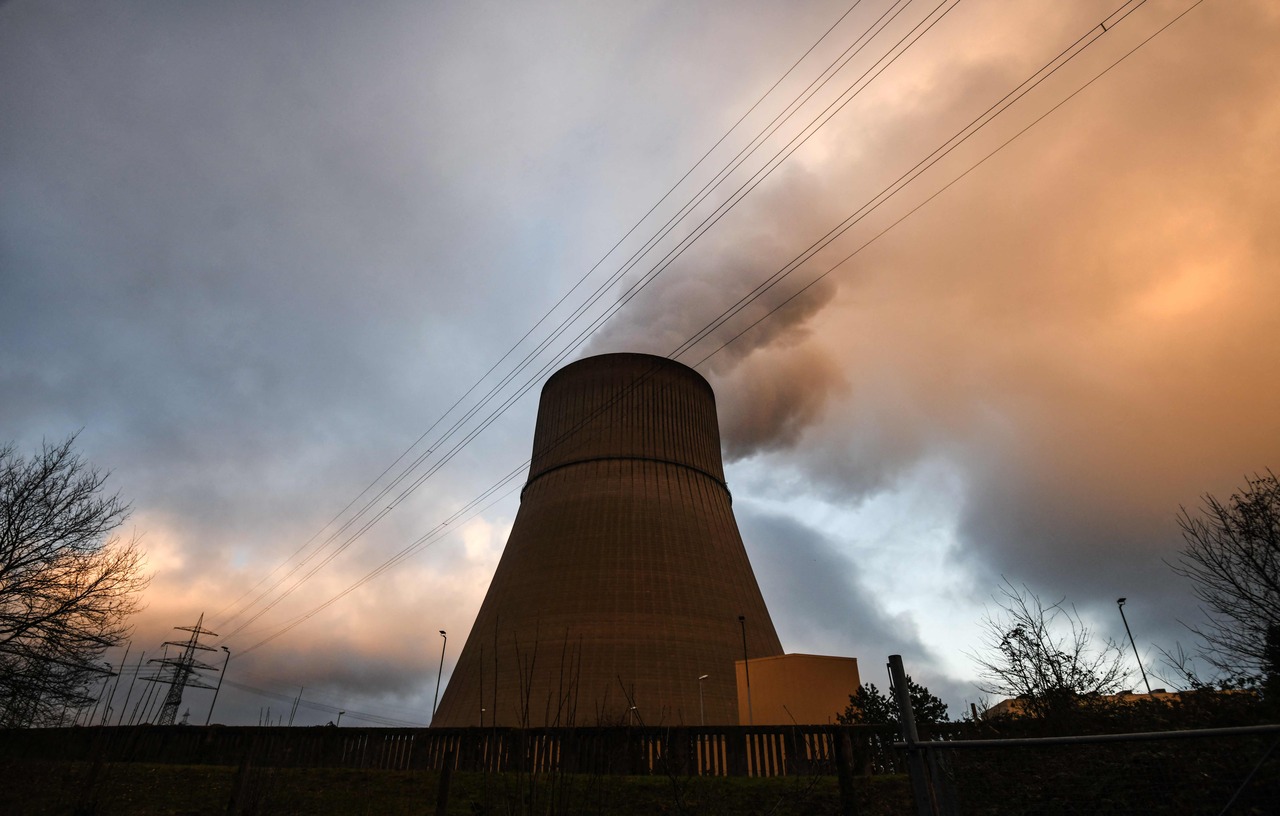Singapore to conduct further studies before using nuclear, geothermal technology
Sign up now: Get ST's newsletters delivered to your inbox

A cooling tower of the nuclear power plant Emsland in Lingen, Germany.
PHOTO: AFP
SINGAPORE - Developments in nuclear energy and geothermal technologies have made them more viable for Singapore, but the Republic will be conducting further studies into their safety and security before they are used here.
"Given the technical complexity of nuclear energy technologies, we will need to continue building our ability to better understand and assess their safety, security and environmental implications before we consider them for deployment in Singapore," Minister of State for Trade and Industry Alvin Tan told Parliament on Monday (April 4).
He added that the Government is supporting research through the Nuclear Safety Research and Education Programme.
"These technologies must meet stringent standards of critical infrastructure resilience in line with the international best practices of developed countries, which have experience in ensuring the safety of such power plants," he said.
Noting that many advanced geothermal and nuclear technologies are still in the research and development phase, and have not begun commercial operations, Mr Tan said the Government would need to consider any decision to deploy new energy technologies against its safety, reliability, affordability and environmental sustainability in Singapore's context.
The Nanyang Technological University, for instance, is conducting exploratory studies to estimate the geothermal resource potential in various parts of Singapore.
He was responding to questions filed by Mr Ang Wei Neng (West Coast GRC), Ms Poh Li San (Sembawang GRC) and Mr Liang Eng Hwa (Bukit Panjang) on the Government's plans to tap these energy sources.
Their questions follow the Energy Market Authority's Energy 2050 Committee Report released on March 22, which identified these low carbon technologies as means to bring down the country's emissions to net zero by or around 2050.
Mr Ang had asked how Singapore will be preparing itself to use nuclear energy in a safe and reliable manner as well as steps the Republic will take to assure its neighbours that the deployment of nuclear energy here will not impact the environment unfavourably with sufficient safeguards.
Ms Poh had asked for technological improvements in nuclear technologies that made them potentially fit and safe for deployment, given the high population density here.
In his reply, Mr Tan said new designs with the potential to be much safer than many of the plants in operation today have been developed since the Government found that conventional large nuclear reactor technologies were not suitable in 2012.
These include Small Modular Reactors (SMRs) and "Generation IV" nuclear technologies, which incorporate enhanced safety systems that may not be possible for older generation technologies, he said.
Some of the SMRs are also designed to cool safely and passively without requiring external systems or operator actions during emergencies, he added.
Another area of interest for Singapore to produce clean energy lies in the potential of nuclear fusion that does not cause chain reactions and will not produce long-lived radioactive waste, said Mr Tan.
He noted that Singapore actively supports international efforts to strengthen the global nuclear safety and security architecture, which includes working with other Asean countries in the Asean Network of Regulatory Bodies on Atomic Energy to help strengthen regional preparedness to respond to a potential nuclear emergency.
Responding to Mr Ang's request for assurance that there will not be similar incidents to the Fukushima nuclear disaster in 2011, Mr Tan observed that the nuclear plant in Japan and the Zaporizhzhya plant in Ukraine are older designs that rely on active systems and nuclear fission technology.
He pointed out that conventional nuclear technologies primarily using fission technology was concluded as being unsuitable for Singapore in 2012, but nuclear fusion technology that is being developed globally has the potential to be much safer.
Mr Liang also questioned the decision of the Energy 2050 Committee to project that nuclear energy could supply only 10 per cent of Singapore's future energy mix.
Mr Tan noted that the target was based on a "certain set of hypothetical scenarios and assumptions" and the Government has not yet set a target for the energy mix in Singapore, which will be evaluated against several factors, namely affordability, sustainability and energy security.


